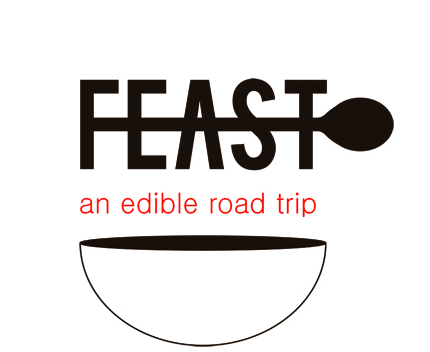Barnyard Organics
Our first stop off the bridge was Barnyard Organics, a 550 acre organic farm in Freetown, run by Mark and Sally Bernard.
The farmland has been in the family for decades, beginning with Mark’s grandfather. It has seen several uses since then, including a traditional mixed farm, a dairy, and a classic PEI potato operation. It’s now primarily used to grow organic feed for animals. Mark happily inherited the life of farming once he finished school at the Nova Scotia Agricultural College; there, he first learned about organic practices as a viable option for farming, and began to consider a new route for his own family farm. Soon after he took over the land, he began the meticulous process of transitioning it from conventional to organic, and by 2010, their soil and farming practices were fully certified.
Mark was motivated to transition the farm because he came to view conventional farming as ‘reactive’ and organic as ‘proactive’, an apt comparison. For example, because he can’t spray or fertilize with conventional products, Mark may have to till a patch of land a few times in order to ensure all the weeds are gone before he plants. This process requires more labour, but it maintains long term soil health, and ultimately treats the root (get it? Weeds?) of the problem. The conventional farmer’s solution is to trade preventative measures for inputs, treating problems as they arise, often with chemicals. That’s not to say conventional farmers don’t work very hard, it’s just a different approach, and one that doesn’t put the health of the soil at top priority.
Like all farmers, Mark and Sally have several projects on the go. In addition to their crops, they raise, slaughter, and sell chickens through a weekly CSA; operate a roastery to ensure their soybeans are more efficient feed for animals; and are continuously testing new crop varieties. Mark and Sally also work with the Organic Agriculture Centre of Canada, offering up plots of land for research and trials of various crops. Initially, they started their operation to sell feed in bulk, but they now also sell off smaller parcels of their product for people in the area who raise pigs and chickens on a small scale.
We discussed the challenges that face them as a large organic operation that transitioned from years of conventional farming. Mark acknowledged that organic farming is often criticized for decreased yields. While this is true for them, they did point out their yield isn’t THAT much lower, and they can also now rely on the longevity of their soil without expensive conventional inputs (ie. fertilizers and sprays), which means a long term win for proactive farming. Also, though they grow for animal feed, their crops often make food grade, and as a result they are able to diversify their income streams—always a bonus for farmers.
All growing talk aside, Mark explained that the most difficult part of farming organically is selling to a less developed and less prevalent market. With conventional, they can offload several tons of almost anything fairly easily, but with organic they have to be a bit more strategic since the market is currently designed to support conventional agriculture. By growing organic animal feed on the scale that they do, Barnyard Organics aims to grow the entire organic industry in the Maritimes.
We first heard about Mark and Sally from Speerville Flour Mill, an incredible operation dedicated to supporting Atlantic farmers and building demand for new and diverse products. Mark and Sally received a paper bag full of Acadian wheat seeds from the fellas at Speerville, some of the last remaining seed of its kind in the Maritimes. Though farmers in other areas had struggled with it, the heritage grain flourished in the auburn PEI soil, and Mark and Sally were able to nurture it from a bag of seed into a 17 tonne crop. Speerville is busy building a market for an Acadian wheat product line to support Barnyard Organics successful growing efforts. Again we will say: watch out for Acadian wheat! (You can read about Sally’s culinary experimentation with the grain here).
What a beautiful story of farmers and food producers working together to save a heritage grain, innovate new products, and promote the organic sector across the Maritimes. Pardon me if I’m gushing, but it leaves my heart warmed all the way through.
Many thanks to Mark, Sally, their beautiful children, their pig, Gail, and their sassy dairy cow for the great tour!
-DV




